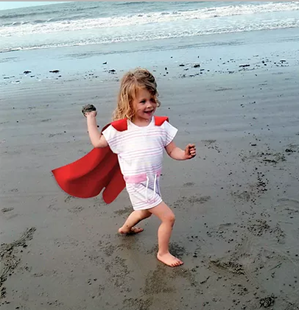Penny Stanley was at an Australian Brain Cancer Mission event five years ago when she first heard about the research Associate Professor Misty Jenkins was undertaking at WEHI. At the time, Penny’s beloved daughter Zoe had been diagnosed with terminal glioblastoma multiforme (GBM).
Penny still remembers being in disbelief at the time of Zoe’s diagnosis.
“I was shocked to learn that funding for research into brain cancer was almost non-existent, and that treatment and survival rates for brain cancer hadn’t improved for the past 20 or 30 years,” she says.
“It left me feeling like I needed to do my part and help raise awareness about paediatric brain cancer, so we can help put an end to this insidious disease.”
Zoe was an incredibly happy little girl who, despite fighting courageously for nine months, lost her battle against GBM just before Christmas in 2017.
Zoe’s Fight Foundation honours the promise Penny and her family made to continue to fight in her memory to help others facing the same battle Zoe so bravely fought.



